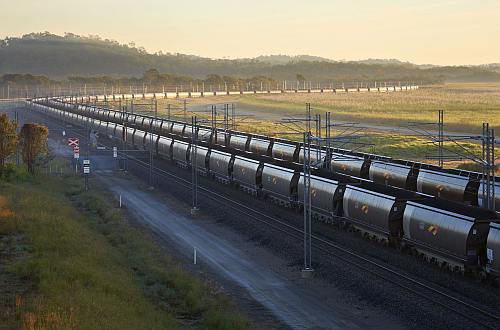Aurizon says it has mobilised all available crews and resources, including contractors, to undertake repairs across its Newlands, Goonyella, Blackwater and Moura coal systems, which form its Central Queensland Rail Network (CQRN).
Worst affected is the Goonyella system which links coal mines with Dalrymple Bay and Hay Point ports. The lines are not expected to reopen until May 8, with recovery and repairs underway at multiple sites along the corridor. Road and rail access to the rail corridor is severely limited, especially around the Black Mountain area, where initial assessments indicate that significant landslips have occurred.
However, the Blackwater system reopened on April 10, albeit under restricted conditions with some reduced capacity. The Moura and Newlands systems are now expected to reopen a few days earlier than originally estimated on April 12 and April 14 respectively.
Aurizon says the cost of repairing rail infrastructure and the loss of revenue is expected to be recovered under an established regulatory process through the Queensland Competition Authority.
However, because the compensation will be received some time after the repairs have been paid for, Aurizon expects its 2016-17 “below rail” earnings to be impacted. The temporary closure of the coal systems is also likely to have a negative impact on Aurizon’s 2016-17 volumes and earnings.
Aurizon is examining alternative routing options for customers and operators as other systems become available in the coming weeks, from the western sections of the Goonyella system, north along the Newlands system to Abbot Point, and south through the Blackwater system to the Port of Gladstone.
BHP Billiton is one of four miners in the region to declare force majeure saying it will be unable to meet its export commitments from the area.
Queensland accounts for more than 50% of global seaborne coking coal supplies, with around 200 million tonnes of coal of all types carried over the CQRN annually.

